Are Geckos Good Pets?
Are Geckos Good Pets?
Geckos are becoming a popular option for reptile owners since they are small and have a longer lifespan. With over 1,600 species of geckos across the world, there is a wide variety of coloring to choose from as well. However, not all of these species are commonly kept as pets or easy to find in different areas. Care requirements will vary between species as well.
Some species of gecko that are commonly kept as pets in the U.S. are:
- Leopard geckos
- Tokay geckos
- Day geckos
- African fat-tailed geckos
- Crested geckos
- Common house geckos
Captive-bred geckos from a reputable breeder are your safest choice. This will help you to avoid any unknown diseases or health issues that you may run into with a wild-caught gecko. Your gecko should have clear eyes, healthy skin without dry patches, no missing fingers or toes, and a healthy appetite.
Behavior
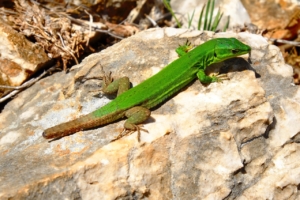
Even with the large variety of species, all geckos tend to have similar behaviors and attitudes. They are generally pretty calm pets but most are not fond of frequent handling by humans. Frequent handling can cause stress in geckos which can lead to other health issues.
Most species of geckos are nocturnal, meaning they will be most active at night. This is an instinctual behavior caused by their small size and often bright colors. However, there are some geckos that tend to be more active during the day such as, the day gecko.
Geckos generally do not make very much noise. However, if they are defending their territory or trying to attract a mate, they may make some noise. This noise might sound like chirping, barking, or clicking.
While geckos are usually not aggressive in most situations, two males living together can become aggressive. This is why it is best to keep one gecko at a time or keep multiple geckos in separate containers It is unlikely that a gecko will bit a human but there are some species that are more likely to bite, such as the tokay gecko.
Habitat
The type of housing that your gecko will require varies by species but all
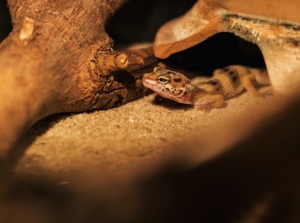
geckos need the following features included in their enclosure. They will need branches to allow for climbing, a water bowl, a place to hide, and a secure lid to prevent escape. Geckos are notorious for escaping from seemingly secure enclosures so make sure to double-check any entry and exit points for weak spots. A 10 to 20-gallon aquarium with a tight-fitting lid is a good choice. Geckos are small and should not be housed together so you will not need an extremely large setup.
Again, what goes inside the enclosure will vary based on the species of gecko you have chosen. However, there are some that are generally good for all species. Safe substrates include coconut husk or orchid bark. Both of these have the ability to retain moisture and are not toxic to geckos if it is ingested in small amounts. You can use paper products such as paper towels or newspapers but there is some concern with the chemicals used to bleach and dye these products and the safety of your pet.
Temperature and Humidity
For most gecko species their enclosure should be kept between 70 and 90 degrees. Although, some species do require an area that is held at a higher temperature (in the 100s) to allow for basking. You can maintain a consistent temperature in your enclosure by using heat lights or heat pads. Keep in mind that your gecko’s habitat should have different temperature “zones” to allow for external temperature regulation. This means, one side of your cage should be on the cooler side, while the other is warmer.
Geckos are typically tropical climate dwellers. You should accommodate their natural needs by providing a consistent enclosure humidity of around 70% to 80%. You can achieve this by misting the enclosure frequently as well as having a large water bowl. Make sure to purchase a hygrometer to keep track of your enclosure’s humidity level.
Feeding
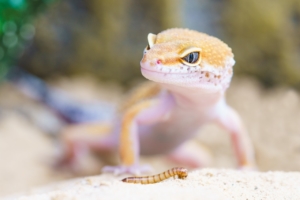
Most geckos natural diet does not typically include plants or vegetables so access to and comfort with live insects is required. Depending on which species of gecko you have there are different types of insect options. Most commonly used are: mealworms, crickets, superworms, and waxworms.
Usually, crickets and mealworms will be your gecko’s everyday foods while superworms and waxworms will serve as a treat. You can give your gecko some fruit as a treat but this is again, based on the species, sex, and age of the gecko. Calcium powder should be sprinkled onto their food intermittently to keep up with your pet’s mineral needs.
Handling
The first step of proper handling for your gecko is to avoid picking up by the tail. This can cause your gecko to “drop their tail” which is a natural defense mechanism to protect them in the wild. If this does happen, their tail will grow back and it’s not a big deal. However, their tail may come back in a different shape or color.
The best way to initiate interaction with your gecko is by offering your finger near your gecko’s chin. This will allow your geck to climb onto your hand. Then, he may curiously explore your hand and arm. Avoid grasping or restraining your gecko unless it is necessary to do so for inspection purposes. Make sure to do this while sitting on the floor or over a table to avoid long falls. Keep your gecko away from other pets and children as these can cause stress to your gecko or injury in extreme cases.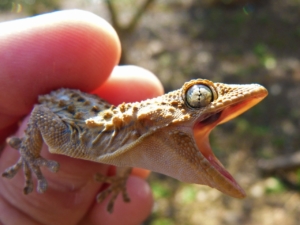
Overall, geckos make great pets. They are small, making them easy to handle and keep in small apartments or homes. Their size is also ideal for those who are intimidated by handling larger reptiles. Their docile nature is also a plus for those who may be nervous about handling. They’re also known to be very eager eaters. Most geckos willingly eat anything you provide them with, allowing handlers to feed and go. They do not require rodents which avoids possible diseases from entering your home. Finally, they have no trouble recognizing a bowl of water as some other reptiles do, so you do not have to have an elaborate fountain set-up.
Improve indoor air quality for you and your pets with CritterZone – an air purifier for pets and pet odor eliminator.

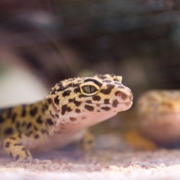


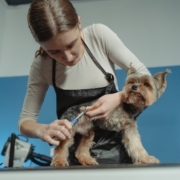






Leave a Reply
Want to join the discussion?Feel free to contribute!